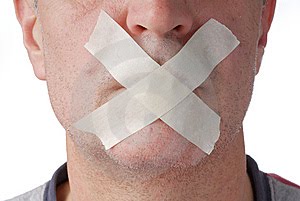Director Ron Howard recently found himself in the crosshairs of controversy, not because of something he said, but because of something a  character in his new movie says. L.A. Times columnist Patrick Goldstein writes about it in Ron Howard on “The Dilemma’s” gay joke: It stays in the movie. Universal Pictures decided to pull a trailer for the movie when they learned that a gay joke had rankled a lot of feathers. Apparently, the character played by Vince Vaughn makes fun of an electric car by saying, “It’s gay.” However, the joke hit a raw nerve.
character in his new movie says. L.A. Times columnist Patrick Goldstein writes about it in Ron Howard on “The Dilemma’s” gay joke: It stays in the movie. Universal Pictures decided to pull a trailer for the movie when they learned that a gay joke had rankled a lot of feathers. Apparently, the character played by Vince Vaughn makes fun of an electric car by saying, “It’s gay.” However, the joke hit a raw nerve.
Goldstein states the obvious point:
Just because a character in a film says or does something wildly inappropriate doesn’t necessarily mean that the filmmaker agrees with it.
Writers talk a lot about their characters being autonomous. Which means, at times, your characters will say or do “something wildly inappropriate.” In fact, remaining true to your characters means letting them act in ways you don’t personally agree with. Nevertheless, it amazes me how many writers hedge at these implications.
In speaking about character dialog, Stephen King, in his book On Writing says:
As with other aspects of fiction, the key to writing good dialog is honesty. And if you are honest about the words coming out of your characters’ mouths, you’ll find that you’ve let yourself in for a fair amount of criticism. Not a week goes by that I don’t receive at least one pissed-off letter (most weeks there are more) accusing me of being foul-mouthed, bigoted, homophobic, murderous, frivolous, or down-right psychopathic. In the majority of cases what my correspondents are hot under the collar about relates to something in the dialogue… (pgs. 185-186 emphasis mine)
Maybe this is why so many authors sanitize their characters — we’re just trying to avoid “criticism.” We don’t want to appear “foul-mouthed, bigoted, homophobic,” etc., so we censor our characters. Besides, if we’re aiming for a specific market, every expletive, every gay joke, every hangover, every sexist taunt, incriminates US and takes us one step closer to the rejection pile.
In his letter to Goldstein, Howard thoughtfully ponders the controversy and its implications for art and freedom of speech:
I believe in sensitivity but not censorship. I feel that our film is taking additional heat as an emblem for many movies and TV shows that preceded it that have even more provocative characterizations and language. It is a slight moment in THE DILEMMA meant to demonstrate an aspect of our lead character’s personality, and we never expected it to represent our intentions or the point of view of the movie or those of us who made it.
… Anybody can complain about anything in our country. It’s what I love about this place. I defend the right for some people to express offense at a joke as strongly as I do the right for that joke to be in a film. But if storytellers, comedians, actors and artists are strong armed into making creative changes, it will endanger comedy as both entertainment and a provoker of thought. (emphasis mine)
It’s ironic that someone as ideologically liberal as Ron Howard is now forced to defend free speech against his own compatriots. But such is the collision of art and ideology.
Goldstein summarizes:
I’m not sure that I’m all that comfortable with most of the gay jokes I’ve heard, but once you start trying to make value judgments about one joke over another, you’re on a slippery slope to the arid wasteland of political correctness.
I can’t help but feel that many publishers and writers need to take note of this incident and its “slippery slope.” Are we demanding characters that fit into our worldview, or the worldview they actually inhabit? Are we constructing characters who are truly autonomous, or just puppets for our own opinions and values? And do we have the courage to let our characters speak their mind, without interjecting our own?
Or is all this talk about autonomous characters just blather?













